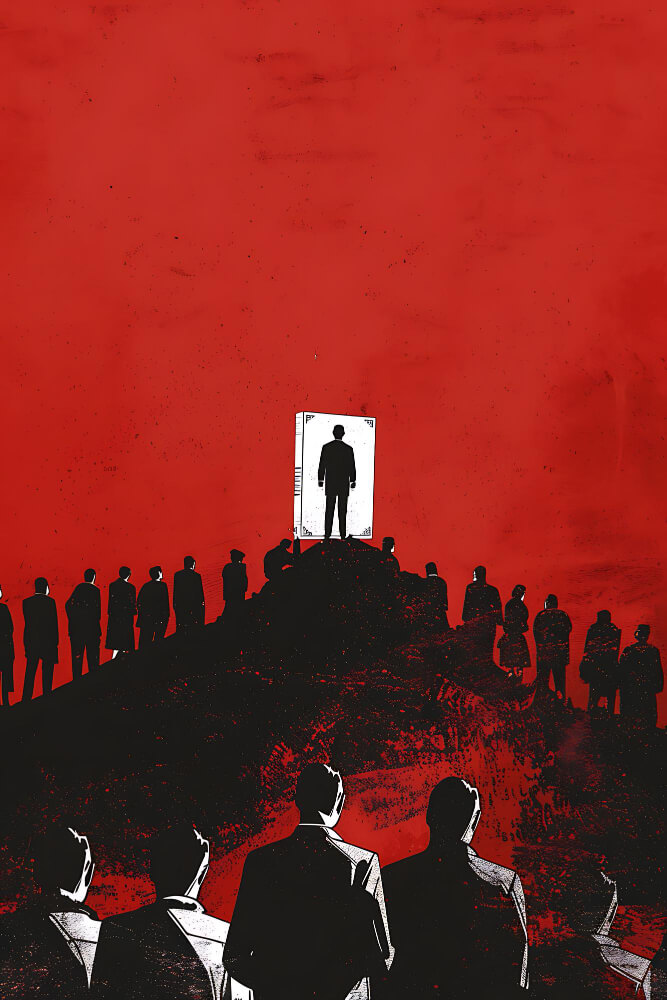EURO: Macron Calls for Snap Elections After Far-Right EU Vote Defeat
The Euro zone economy is fears due to Political uncertainity in the France, Exit Polls said Marie Le Pens Far Right party acquired 32-33% seat, it is nearly double up from France President Emmanuael Macron Party list. Now France President calls for Snap Election for his confidence among people, this political uncertainity causes Euro currency weakness in the market against Counter pairs.
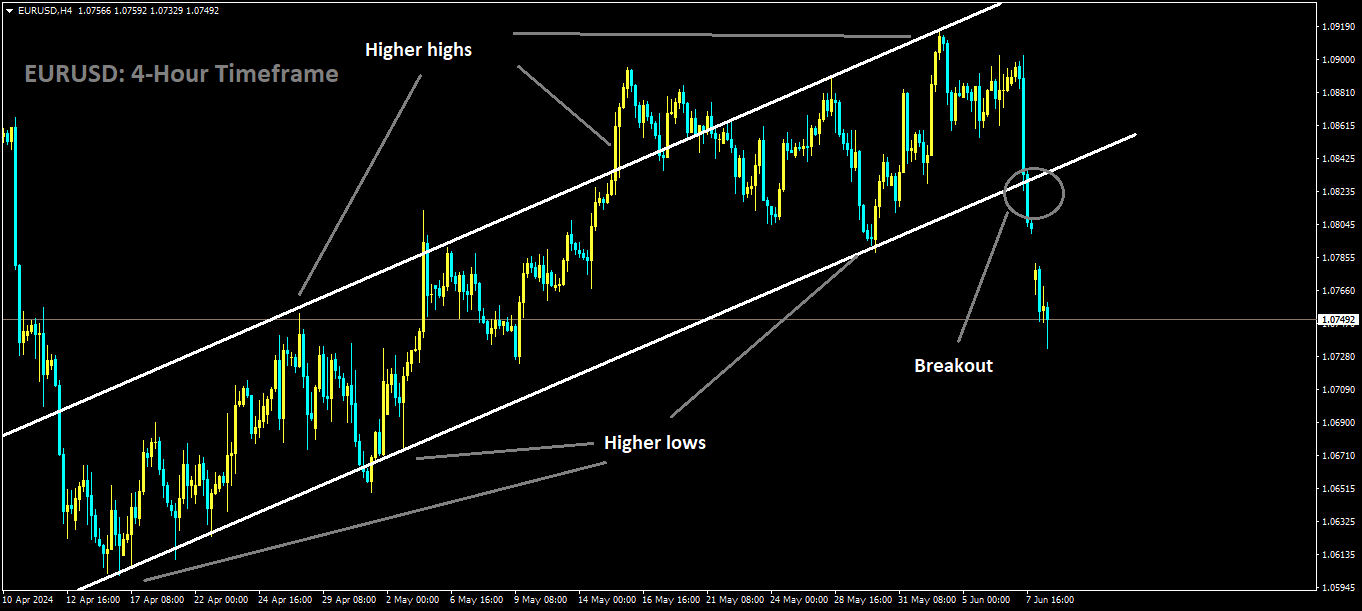
EURUSD has broken Ascending channel in downside
Following the European Union (EU) elections, French President Emmanuel Macron announced on Sunday that he would call for snap elections in an unprecedented move.
Macron stated his intention to dissolve parliament and initiate new legislative elections after exit polls indicated that his political alliance suffered a significant defeat in the European elections to Marine Le Pen’s far-right National Rally (RN) party.
In an address to the nation, Macron declared that the elections for the lower house would be scheduled for June 30, with a second-round vote planned for July 7.
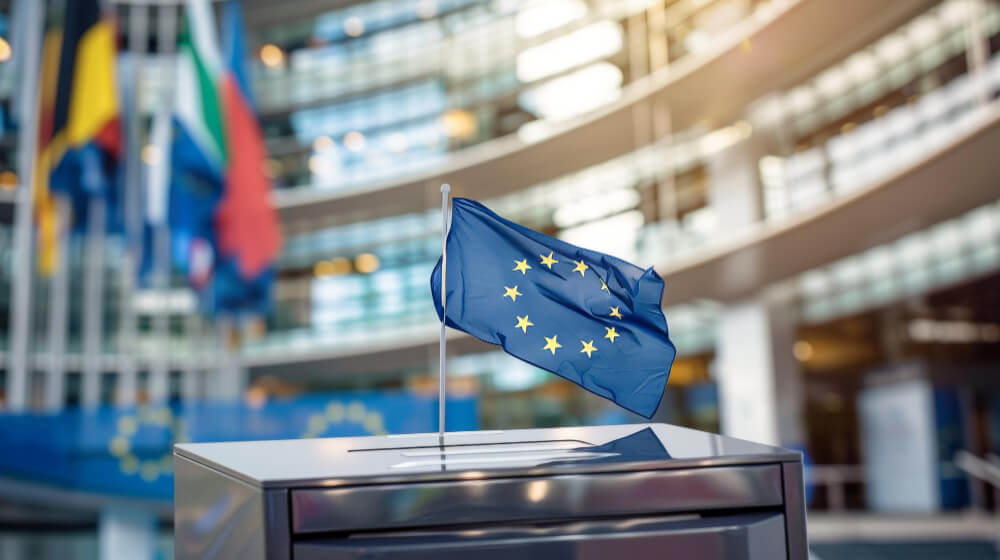
Macron emphasized, “This is an essential time for clarification. I have heard your message, your concerns, and I will not leave them unanswered. France needs a clear majority to act in serenity and harmony.”
He also remarked, “Far-right parties are making progress across the continent. This is a situation to which I cannot resign myself.”
This announcement followed Macron’s warning on Thursday that the EU risked being “blocked” by a substantial far-right presence in the European Parliament following this week’s elections.
EURO: Macron’s Risky Move: Calls Snap Election Le Pen Might Win
The Eurozone economy is beset by trepidation due to the political turbulence in France. Exit polls reveal that Marine Le Pen’s far-right National Rally party has secured 32-33% of the vote, approximately doubling the tally of President Emmanuel Macron’s Renaissance party. In an attempt to restore public confidence, President Macron has called for snap elections. This political volatility is exerting downward pressure on the Euro, leading to its depreciation against other major currencies.
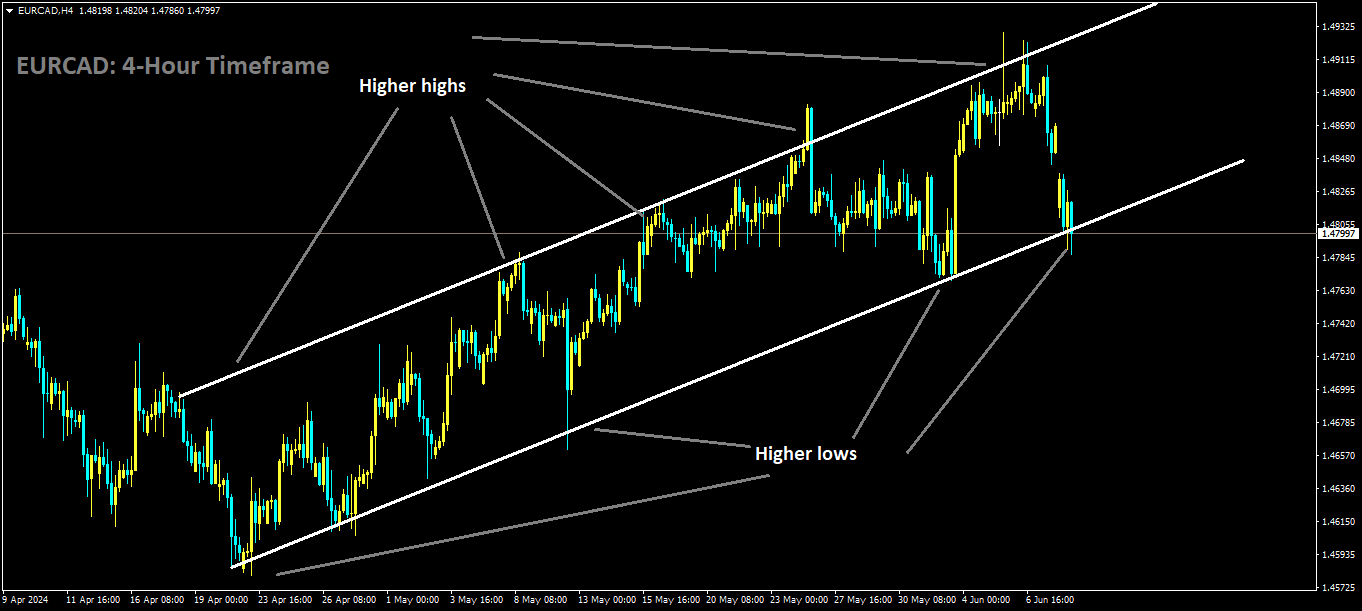
EURCAD is moving in Ascending channel and market has reached higher low area of the channel
French President Emmanuel Macron’s decision to call a snap national election following a surge for his far-right rivals is a high-stakes move and a huge political gamble, analysts say.
Macron’s decision to call a snap parliamentary vote comes after the right-wing National Rally (RN) party, led by Marine Le Pen, won around 31% of the vote in Sunday’s European Parliament election. This result significantly outperformed Macron’s pro-European and centrist Renaissance Party and its allies, which garnered only 14.6%.
In response to this electoral setback, Macron addressed the nation on Sunday evening, announcing his decision to dissolve parliament. He emphasized the need for clarity, saying, “This is an essential time for clarification. I have heard your message, your concerns, and I will not leave them unanswered. France needs a clear majority to act in serenity and harmony.” The first round of voting is scheduled for June 30, with a second round on July 7.
The announcement had immediate financial repercussions. France’s CAC 40 index dropped 1.8% in early trading on Monday, with French banks, particularly BNP Paribas and Societe Generale, experiencing significant declines of around 6%. Additionally, the euro fell by approximately 0.4% against the dollar due to the political uncertainty.
Macron’s Renaissance Party currently holds 169 of the 577 seats in France’s lower house of parliament, while the RN has 88 seats. An Ipsos poll of 4,000 people conducted last December suggested that the RN could win between 243 and 305 seats, potentially giving it a majority in parliament. If this were to happen, Macron would likely face pressure to appoint a prime minister from the RN, who would then have substantial influence over France’s domestic and economic policies. However, Macron, as president, would retain control over foreign policy, justice, and defense.
Daniel Hamilton, a senior fellow at the Foreign Policy Institute of Johns Hopkins University SAIS, described Macron’s decision as the “big story” of the European Parliament vote, potentially leading to a seismic shift in French governance. Hamilton noted that Macron might be attempting to use the three years before the next presidential elections to demonstrate the failings of an RN-led government, thus hoping for voter backlash against the RN.

Antonio Barroso, deputy director of research at consultancy Teneo, echoed this sentiment, suggesting that Macron is trying to mobilize the centrist electorate and limit the chances of the RN obtaining an absolute majority. Barroso pointed out that even if the RN leads a minority government, a fragmented parliament would make it difficult for them to pass legislation.
Barroso also noted that Macron might be attempting to bring a National Rally victory forward in time to expose the party’s inexperience in government, forcing them to make politically painful decisions ahead of the 2027 presidential election. For instance, the RN would need to address France’s large budget deficit, which would likely require either spending cuts or tax increases—an important test for Le Pen, who has positioned herself as fiscally responsible to attract center-right voters.
Analysts are divided on whether Macron’s decision reflects political strategy or arrogance. Douglas Yates, a professor at the American Graduate School in Paris, questioned Macron’s motivations, suggesting that either he is overestimating his political acumen or he is strategically planning for long-term benefits despite potential short-term losses.
Deutsche Bank analysts described Macron’s decision as a “big gamble,” suggesting that the president might be hoping to regain momentum, assuming that a significant portion of the European Parliament results were protest votes. They also speculated that involving the RN more in government could diminish their appeal before the 2027 presidential elections.
EURO: Macron’s High-Stakes Gamble: Surprise Election Called
The Eurozone economy is experiencing increased fears due to political uncertainty in France. Exit polls indicate that Marine Le Pen’s far-right National Rally party has acquired 32-33% of the vote, nearly double that of President Emmanuel Macron’s Renaissance party. In response, President Macron has called for snap elections to regain confidence among the people. This political uncertainty is causing weakness in the Euro currency in the market against other currencies.
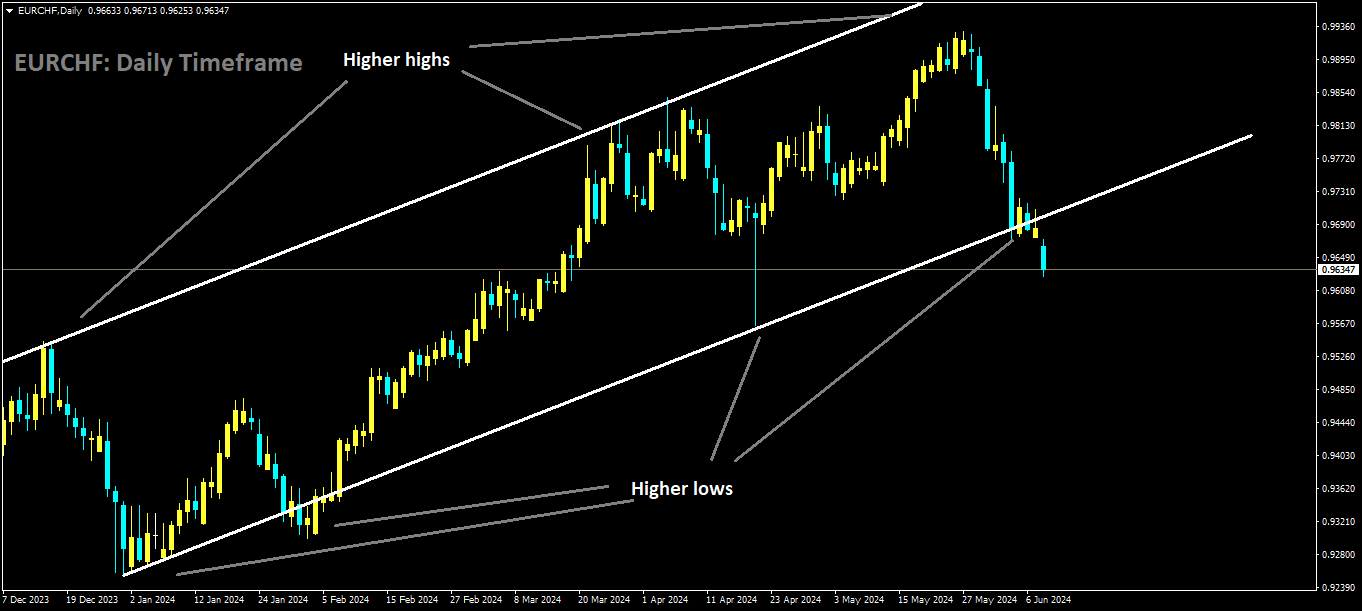
EURCHF is moving in Ascending channel and market has reached higher low area of the channel
President Emmanuel Macron has called for snap parliamentary elections later this month following a significant victory for his rival Marine Le Pen’s National Rally in the European Parliament vote. According to exit polls, the far-right party is set to win 32% of the vote, more than double the percentage garnered by Macron’s Renaissance party.
In a televised address from the Élysée Palace, Macron announced the dissolution of parliament and scheduled the two rounds of voting for June 30 and July 7, just a few weeks before the Paris Olympics. This dramatic and unexpected decision was made an hour after voting closed and the exit polls were announced.
Macron’s move came shortly after Jordan Bardella, the 28-year-old leader of the National Rally, openly called on the president to call parliamentary elections. Macron addressed French voters, stating, “I have heard your message and I will not let it go without a response. France needs a clear majority in serenity and harmony.” He expressed his concern over the far-right’s progress “everywhere on the continent.”

Currently, Macron lacks a majority in the French parliament, and although the European vote theoretically does not affect national politics, he decided that continuing his mandate without a new popular consultation would be too straining. These parliamentary elections will not affect Macron’s presidency, as his term continues for another three years.
Marine Le Pen, who has been defeated twice by Macron in presidential elections, reacted promptly, saying her party was “ready to exercise power, ready to put an end to mass immigration.”
Calling a snap election is a significant surprise and a considerable risk for Macron. He could have explained the far-right’s victory as an anomaly specific to the European elections and relied on upcoming events, such as the European football championship in Germany and the Paris Olympics, to divert public attention. However, Macron had likely anticipated this outcome and planned his response accordingly.
Without a parliamentary majority, passing any legislation in the National Assembly is already challenging for Macron. With most of the country now apparently against him, new legislation, such as the upcoming budget, could have led to further turmoil. Macron chose to seek “clarity,” suggesting that if the National Rally has the votes, they should be given the chance to govern.
While Macron hopes for a strong performance by his Renaissance party or other parties in the elections on June 30 and July 7, he must recognize that the odds favor another victory for the National Rally. This could result in the National Rally becoming the largest party in parliament, potentially leading to a Prime Minister Marine Le Pen or Jordan Bardella.
🔥Stop trying to catch all movements in the market, trade only at the best confirmation trade setups
🎁 60% OFFER for Trading Signals 😍 GOING TO END – Get now: https://forexfib.com/offer/

